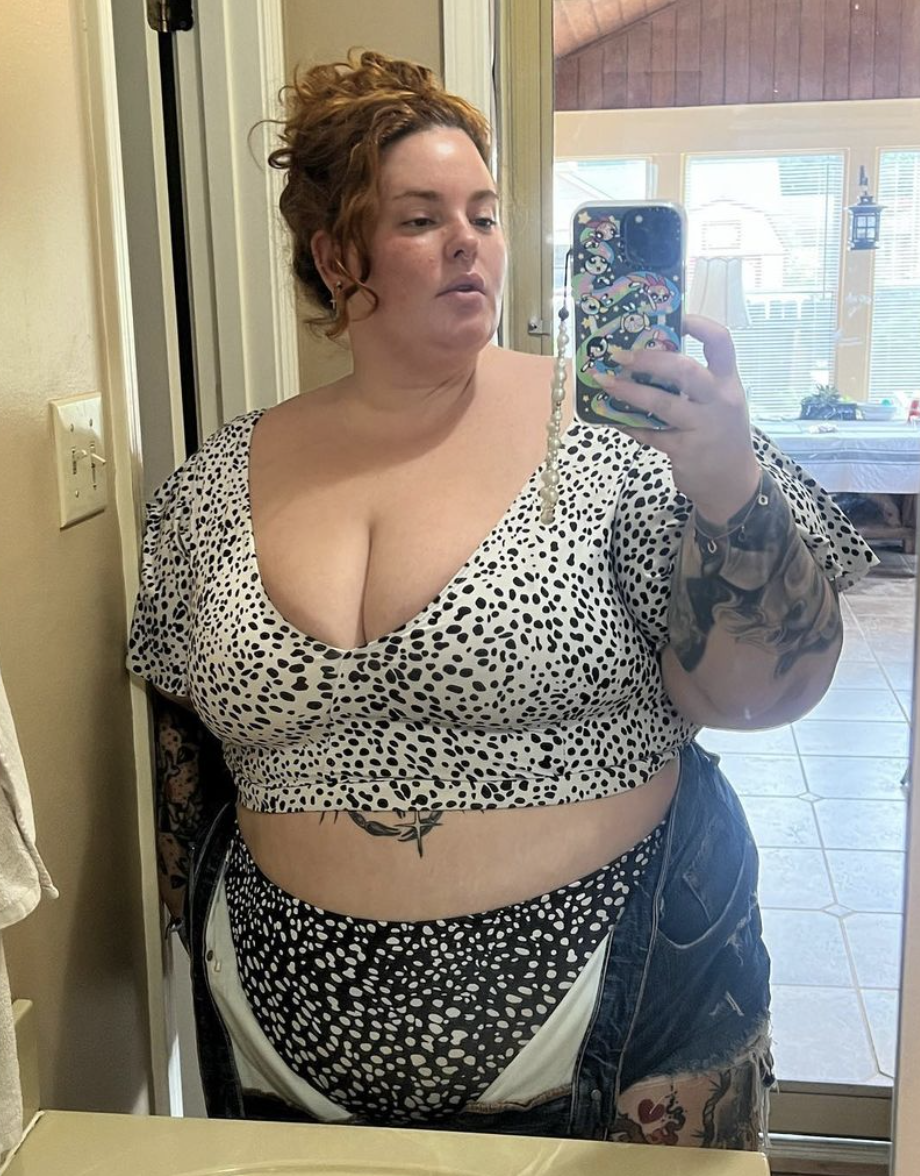Tess Holliday was just as “shocked as everyone else” when she was diagnosed with anorexia. At 38, this American plus-sized model, blogger, and makeup artist champions body positivity and openly identifies with the term “fat.”
Despite being an inspiration for many by promoting self-love, Holliday has had to shield herself from harsh critics. She recently opened up about the disbelief she felt upon learning about her anorexia diagnosis.
Originally, when Holliday disclosed her condition, she faced skepticism, with many accusing her of making it up. Anorexia typically involves an obsessive focus on food and weight, leading to unusual eating habits to manage stress and anxiety, according to Johns Hopkins Medicine.
Research suggests that eating disorders are significantly underdiagnosed in larger bodies due to a common misconception that these issues only affect thin individuals. Beat, an eating disorder charity, explains, “Eating disorders are mental illnesses. They are not necessarily visible and do not always result in drastic weight changes.”
A study in Frontiers in Psychology highlighted a bias in mental health training, showing that professionals are more likely to diagnose anorexia in individuals who are ‘underweight’ or ‘normal weight’ and less likely to offer adequate therapy to those who are ‘overweight.’

Holliday’s journey began with her dietician, who first suggested she might have an eating disorder. “I laughed when she said anorexia because of my size. It seemed so unlikely,” Holliday recalls.
This was later confirmed by a psychologist, helping her realize that “bodies of all sizes and shapes can starve.”
Holliday shared her experiences on X, formerly known as Twitter, expressing her newfound freedom and recovery, “I’m anorexic and in recovery. I’m not ashamed to say it out loud anymore. I’m the result of a culture that celebrates thinness and equates that to worth, but I get to write my own narrative now.”
The revelation sparked support on social media, with followers commending her for challenging the typical perceptions of anorexia. Comments ranged from gratitude for her visibility to personal stories of similar struggles in larger bodies.

However, not everyone was supportive. In an essay for Today, Holliday shared the backlash: “Some accused me of lying for attention. It’s frustrating, but it also highlights the widespread misunderstanding of eating disorders.” She addressed one particularly harsh comment in a video, advocating for greater awareness and empathy.
Holliday admits she’s still navigating her recovery and isn’t always ready to discuss it, but she remains committed to sharing her story to help others understand and recognize similar issues.
Holliday’s journey underscores a crucial message: mental health support for plus-size individuals must improve. “The best way to support us is by recognizing our mental health struggles,” she writes.
For anyone affected by these issues, resources are available. In the UK, BEAT Eating Disorders can be reached at 0808 801 0677. In the USA, contact the National Eating Disorders Association at (800) 931-2237 or visit their website for support.

